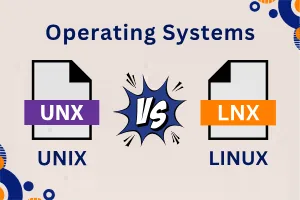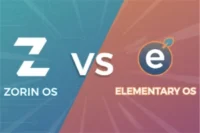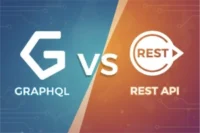Differences Between Solar and Wind Power for Small Tech Devices
Published: 8 Jan 2025
Renewable energy sources like solar and wind power are transforming how we power small tech devices, such as smartphones, wearables, and portable sensors. Both options are eco-friendly and sustainable, but they operate differently and suit different needs.

In this article, we will explore the detailed comparison of solar and wind power for small tech devices to help you make informed choices.
Quick Comparison Table: Solar vs Wind Power
Here’s a quick comparison table of Solar vs Wind Power for small tech devices:
| Feature | Solar Power | Wind Power |
| Energy Source | Sunlight | Wind |
| Efficiency | High in sunny regions | High in windy regions |
| Portability | Lightweight and compact | Bulkier, requires setup |
| Maintenance | Minimal | Regular upkeep needed |
| Noise Levels | Silent | Can produce noise |
| Installation | Easy, requires little space | More complex, needs open areas |
| Cost | Affordable upfront | Higher initial investment |
| Best for | Sunny environments | Windy environments |
| Nighttime Operation | Requires battery storage | Can work with wind available |
| Environmental Impact | Clean and renewable | Clean and renewable |
Detailed Comparison Between Solar and Wind Power
Now we discuss all the differences solar vs wind power one by one in detail:
Energy Source
Solar Power: Solar panels use sunlight to produce electricity. They are ideal for regions with abundant sunlight, especially during summer months.

Wind Power: Wind turbines rely on moving air to generate energy. They are better suited for areas with consistent and steady wind flow, such as coastal regions or open plains.
Efficiency
Solar Power: Highly efficient in sunny areas, but performance drops during cloudy days or at night. Advances in technology have improved efficiency even in low-light conditions.
Wind Power: Efficiency depends on wind speed. Turbines can be ineffective in low or excessively high winds, but they can work 24/7 if wind conditions are favorable.
Portability
Solar Power: Solar panels are lightweight and compact, making them highly portable. They are ideal for outdoor activities like hiking or camping.
Wind Power: Small wind turbines are portable but bulkier. They require proper installation and space to function effectively.
Maintenance
Solar Power: Panels require little to no maintenance as they have no moving parts. Occasional cleaning to remove dust or debris is sufficient.

Wind Power: Turbines have moving components that can wear out, requiring regular maintenance to ensure optimal performance.
Noise Levels
Solar Power: Operates silently, making it suitable for use in noise-sensitive areas like residential neighborhoods or campsites.
Wind Power: Small turbines can produce noticeable noise, which may not be suitable for certain environments.
Setup and Installation
Solar Power: Easy to set up and requires minimal space, especially for small tech applications. Can be mounted on backpacks or placed on flat surfaces.

Wind Power: Installation can be more challenging, requiring open areas for optimal wind capture. Turbines must also be securely anchored.
Cost
Solar Power: More affordable for small-scale applications. The cost of solar panels has decreased significantly, making them accessible for most users.
Wind Power: Small turbines are generally more expensive upfront and may incur higher maintenance costs over time.
Suitability for Small Tech Devices
Solar Power: Best for devices that require a steady and predictable energy supply in sunny regions.
Wind Power: Suitable for gadgets used in remote or off-grid locations with reliable wind conditions.
Which One is Best?
Choosing between solar and wind power depends on your specific requirements and environment:

- Best for Sunny Regions: Solar power is the clear winner for areas with consistent sunlight, offering portability and easy setup for small tech devices.
- Best for Windy Locations: Wind power is better suited for regions with steady wind flow, providing energy even during nighttime.
- Hybrid Approach: Combining solar and wind power can be a great solution, ensuring a reliable energy supply regardless of weather conditions.
- For Noise-Sensitive Areas: Solar power is ideal since it operates silently, whereas wind turbines might produce noise.
- Cost Consideration: Solar power is generally more affordable and easier to maintain compared to wind power for small-scale applications.
Ultimately, the best option depends on your location, energy needs, and the specific small tech devices you intend to power.
Conclusion
Solar and wind power offer unique advantages for powering small tech devices. Solar power is ideal for sunny environments, offering silent operation and portability. Wind power, on the other hand, is more effective in windy regions and can provide energy around the clock if wind conditions are favorable.
Understanding these differences will help you select the most suitable energy source for your needs. Combining both solar and wind power can also create a reliable and efficient hybrid solution for powering your small tech devices.
FAQs about Solar Power vs Wind Power
Here are some of the most FAQs related to solar power vs wind power:
Efficiency depends on the location. Solar power is ideal in sunny areas, while wind power performs better in regions with consistent wind.
Yes, combining solar and wind power creates a balanced energy supply, especially in areas with varying weather conditions.
Yes, solar panels are lightweight and easier to transport, making them more portable than wind turbines.
Solar panels do not generate power at night but can store energy in batteries for later use.
Small wind turbines can produce some noise, unlike the completely silent operation of solar panels.
Solar power is generally more cost-effective due to lower initial costs and minimal maintenance requirements.
No, wind power relies on moving air and is not suitable for indoor use.
Solar panels typically last 20-25 years, while wind turbines require regular maintenance but offer similar lifespans.
For off-grid areas, solar is better in sunny locations, while wind is ideal for regions with steady winds.
Yes, both solar and wind power are renewable, eco-friendly, and have minimal environmental impact.

- Be Respectful
- Stay Relevant
- Stay Positive
- True Feedback
- Encourage Discussion
- Avoid Spamming
- No Fake News
- Don't Copy-Paste
- No Personal Attacks

- Be Respectful
- Stay Relevant
- Stay Positive
- True Feedback
- Encourage Discussion
- Avoid Spamming
- No Fake News
- Don't Copy-Paste
- No Personal Attacks





